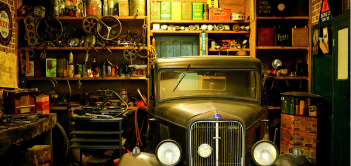Looking for In-Home Care? See All Services
Looking for In-Home Care? See All Services

In a previous post, we discussed the clinical definition and dangers of hoarding disorder (HD). If you are unsure if your loved one has HD, the International OCD Foundation says the key feature of HD is disorganization to the point where the living spaces can no longer be used for everyday activities as they were intended.
Other warning signs of HD include:
Before you decide to have a talk with your loved one, consider their feelings about the clutter. The International OCD Foundation offers the following guidelines about how they may feel:
It may be difficult to dive directly into the clean-up process because of your loved one’s complex emotions. Be considerate of their feelings and bring up the topic in a sympathetic and respectful manner. You may be frustrated and resentful by the clutter, but keep in mind these items are valuable and important to them. According to the International OCD Foundation, “An atmosphere of understanding can help with negotiations to keep certain spaces clutter-free which will help maintain family harmony.”
Clutter can cause dangerous fall risks in the home. Many ComForCare Home Care locations offer complimentary fall risk assessments, which includes identification of potential home hazards.
In addition, our caregivers can provide light housekeeping such as dusting and vacuuming and assist with personal care. These are just some of the ways you and your loved one live their best life possible. Find a ComForCare Home Care location near you to learn more.
Editor’s note: This article was originally published March 29, 2016. It has been revamped and updated for accuracy and comprehensiveness.


Each office is independently owned and operated
and is an equal opportunity employer.
© 2025 ComForCare Franchise Systems, LLC.
Contact Us
(800) 886-4044